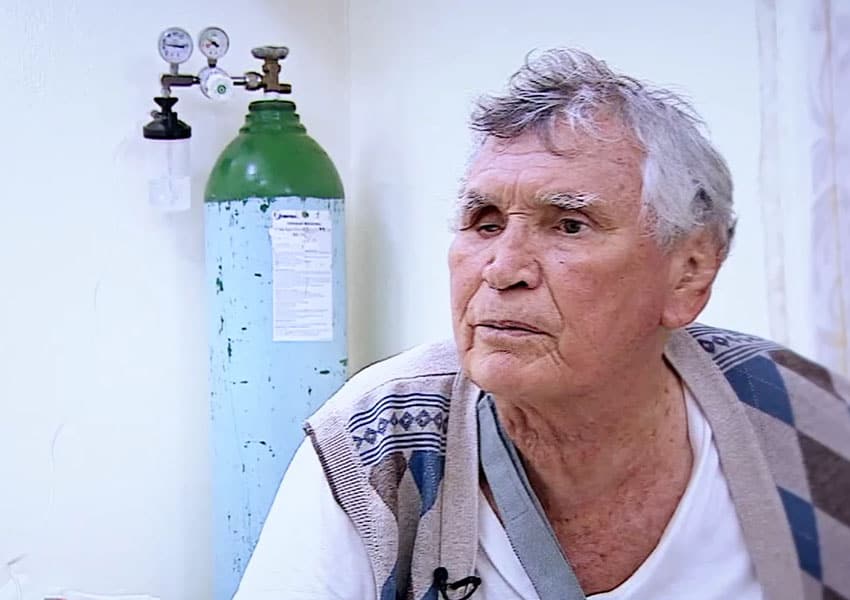La Reina del Pacífico (The Queen of the Pacific) believes the protagonist of the television drama La Reina del Sur (The Queen of the South) is based on her, and she’s not happy about it.
Sandra Ávila Beltrán, a 61-year-old Mexicali native, is aiming to get a hefty payout from streaming service Netflix and television network Telemundo. She says that the lead character in the Spanish-language TV show — the fictional drug lord Teresa Mendoza — is an unauthorized portrayal of her.
Ávila, who is often referred to by the nickname La Reina del Pacífico, has been accused but never convicted of drug trafficking. However, she spent seven years in jail on money laundering and firearm charges
Legal documents obtained by the Milenio newspaper show that Ávila filed an administrative complaint against Netflix and Telemundo with the Mexican Institute of Industrial Property (IMPI) in January. Ávila argues that her image was used without her consent. According to her lawyers, the filing is the first step toward a legal case against the two U.S. behemoths.

La Reina del Sur premiered in 2011, ran for a second season in 2019 and will hit screens for a third season later this year. Those two companies named in the complaint co-produced seasons 2 and 3 of the drama, in which actor Kate del Castillo stars as Mendoza, a Mexican woman who becomes the most powerful drug trafficker in the south of Spain.
The series is not to be confused with an English-language remake of the series, entitled Queen of the South, which starred Alice Braga as Teresa Mendoza and ran on the USA network between 2016 and 2021.
Ávila, Milenio reported, believes that the similarities between her and the fictitious Mendoza are no coincidence.
“The resemblance between Teresa and Sandra is certainly there to interpret,” the newspaper said, noting that both are brunettes, attractive, norteñas (from northern Mexico), in their 50s and involved in the drug trafficking world. In addition, La Reina del Sur has been promoted as a series based on actual events.
In her IMPI complaint, Ávila claimed that Netflix and Telemundo “acted maliciously with the intention of discrediting me and obtaining an economic benefit based on that.”
She specifically cited a 2019 Telemundo news broadcast during which the network did a cross-promotion for the second season of La Reina del Sur that included footage of both Ávila and del Castillo as Mendoza, insinuating a link between them. A Telemundo reporter went further, saying that Ávila — a niece of Guadalajara Cartel founder Miguel Ángel Félix Gallardo and allegedly a go-between for the Sinaloa Cartel and Colombian cocaine traffickers — was the “muse” for the series.
If her complaint is successful, Ávila will seek in court an amount equal to 40% of the profits generated by the Spanish-language series, which could mean a multimillion-dollar payout given the drama’s estimated revenue.
Ávila’s lawyers said they decided on the 40% figure because the Supreme Court ruled last year that alcoholic beverage company Diageo México must pay actor Gael García Bernal 40% of the revenue it obtained from sales of Johnnie Walker whisky during the period that its Caminando con Gigantes (Walking with Giants) campaign ran in September and October 2011.

The company used García’s image without authorization in that campaign.
Ávila’s complaint asserted that “the use of [her] image” was not for an “informative or journalistic purpose” but for a “commercial” one. She and her lawyers say that Netflix and Telemundo have violated Mexican copyright laws as well as the Mexican constitution and international agreements.
“Nobody has the right to disseminate the image of a person, her anecdotes, life and essence without authorization,” Israel Razo, a lawyer for Ávila, said in a message sent to Milenio.
In an interview with Milenio Televisión, the lawyer asserted that his client has been defamed by the screening of La Reina del Sur because she has never been convicted of drug trafficking charges.
“It has a direct impact on her image … living with a drug trafficker moniker is very difficult,” Razo said.
Razo pointed out that Ávila has been acquitted of all drug trafficking charges against her. “Imagine going out to the street and having … [people] see you as a drug trafficker and separately having foreign companies exploiting that,” he said. “… What we want is to set a precedent [that] you can’t use people’s image carelessly,” Razo said.
The case could have broader ramifications given that numerous other accused and convicted narcos have been portrayed on screen, in many cases without any attempt to obscure their identity.
With reports from Milenio
